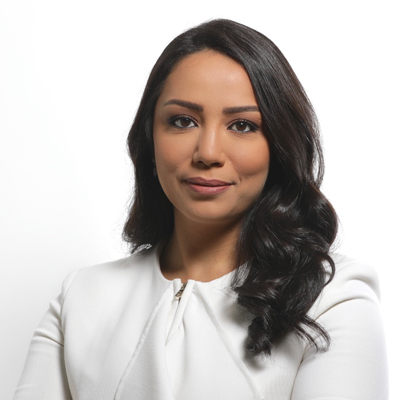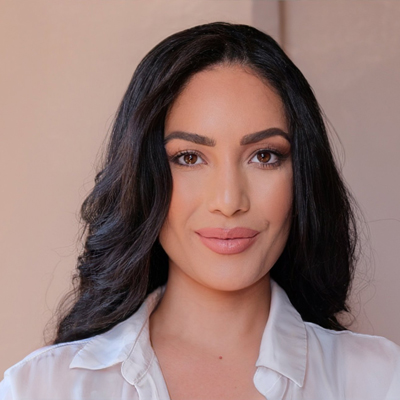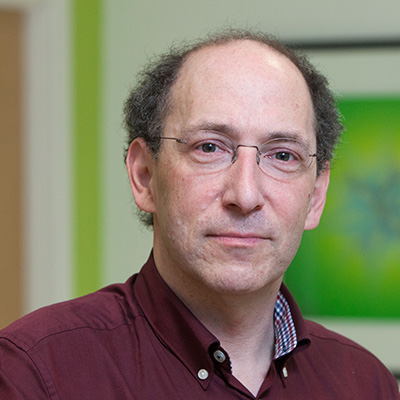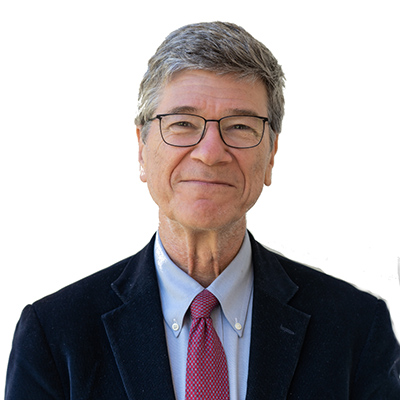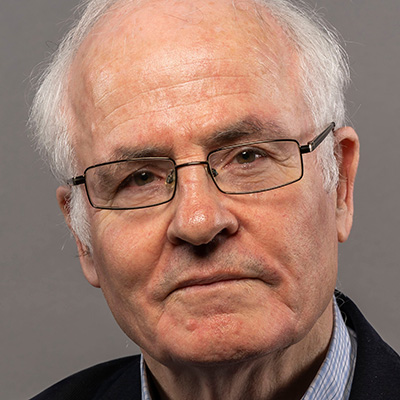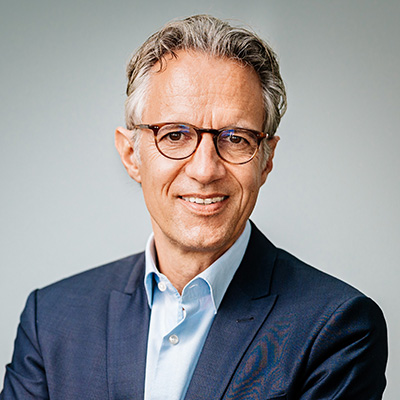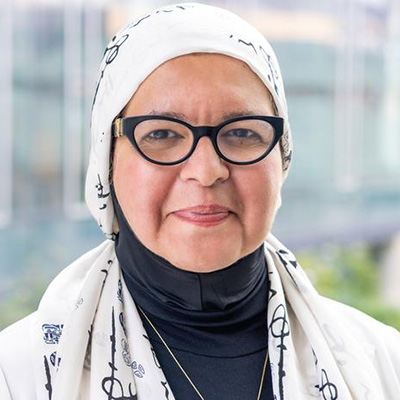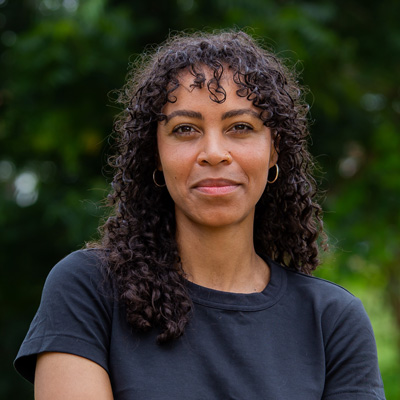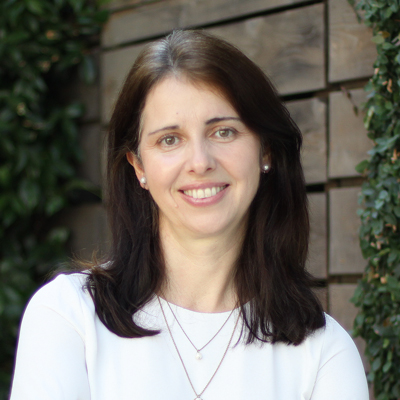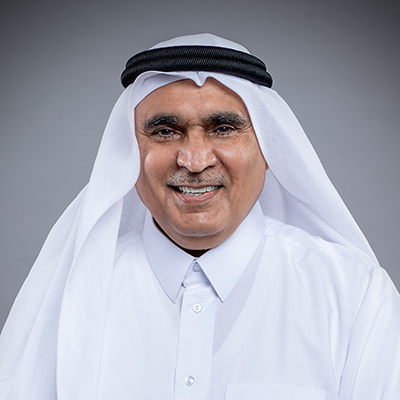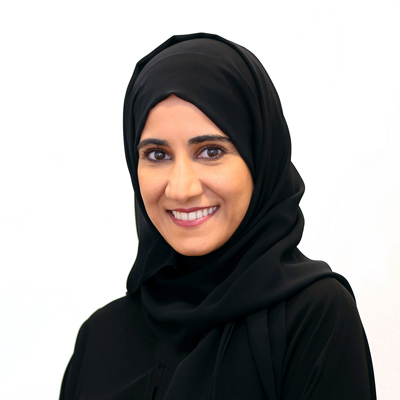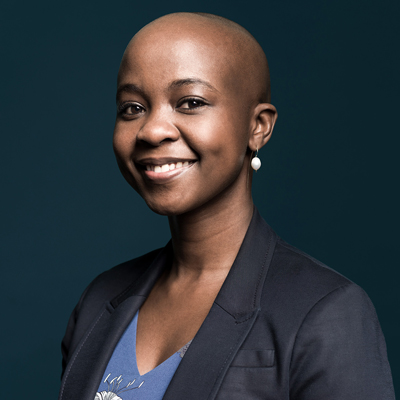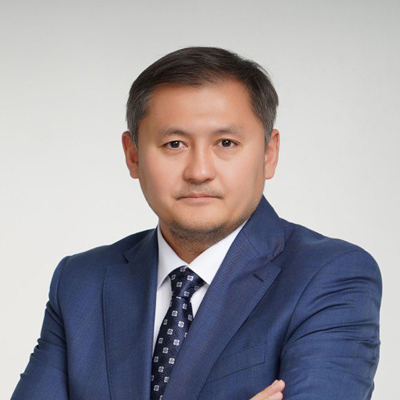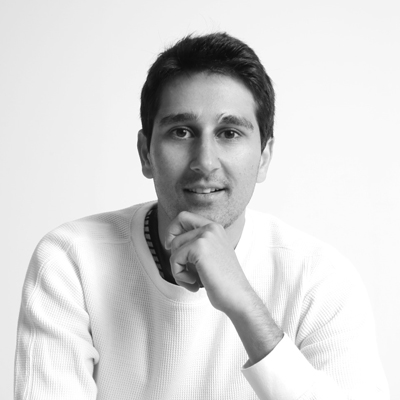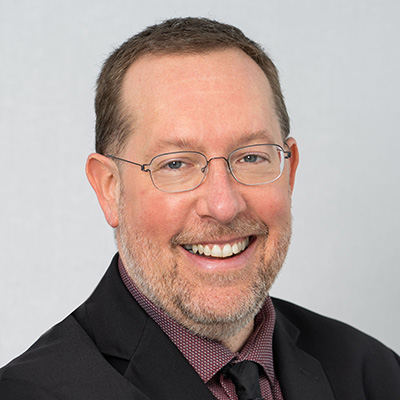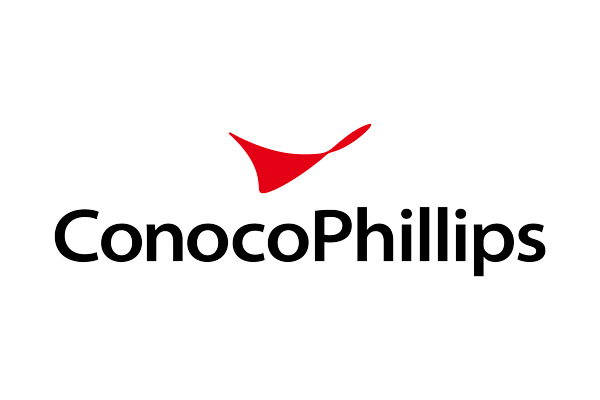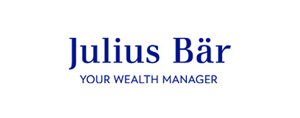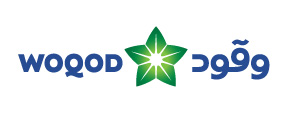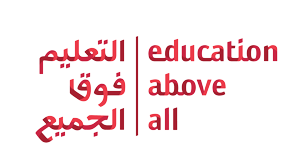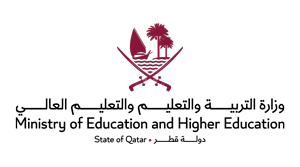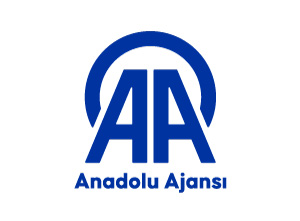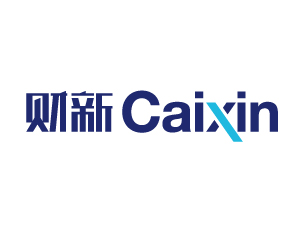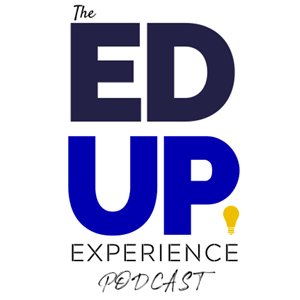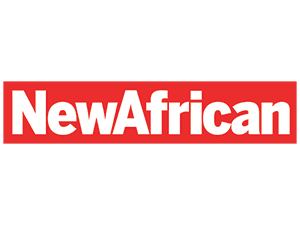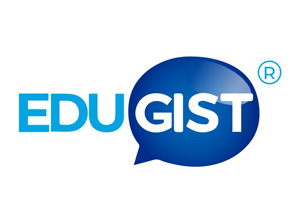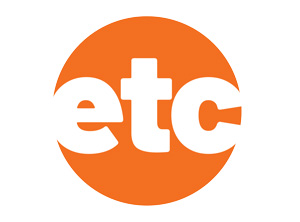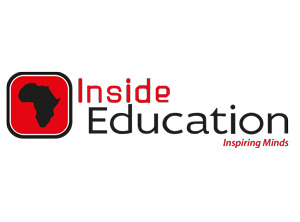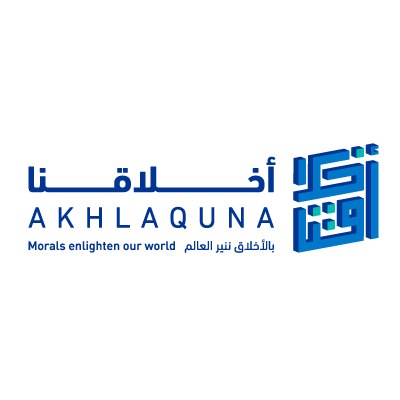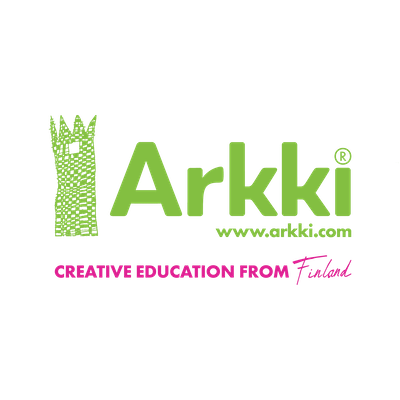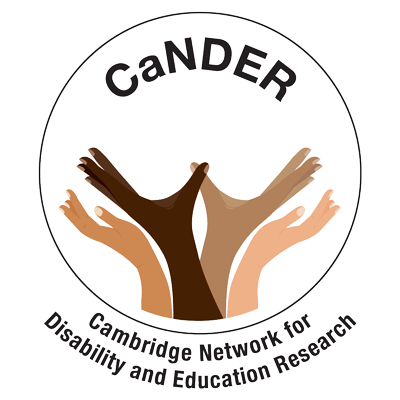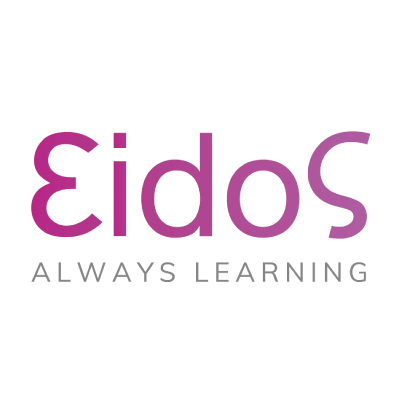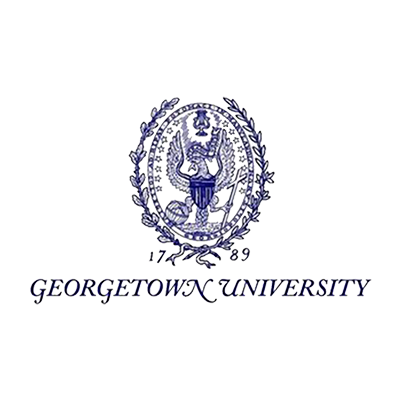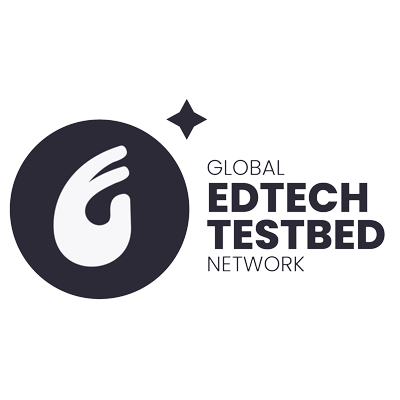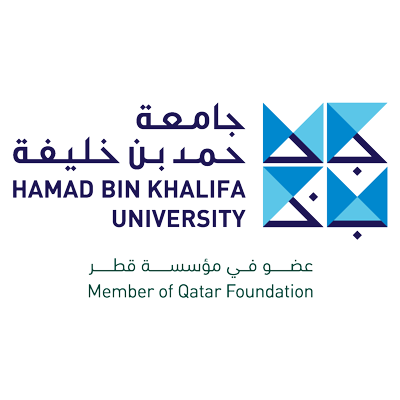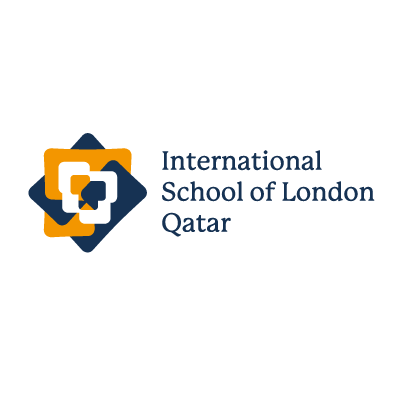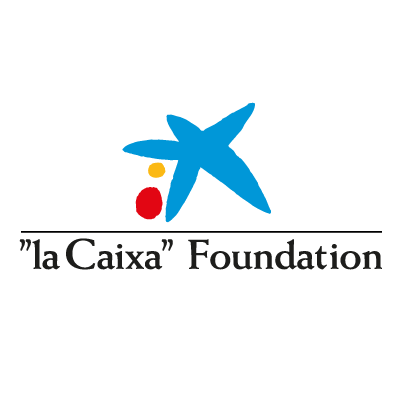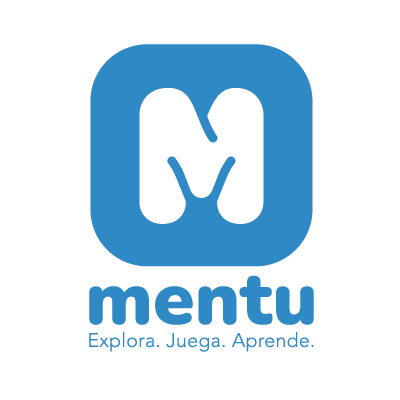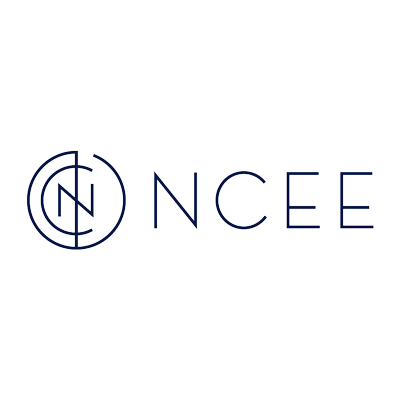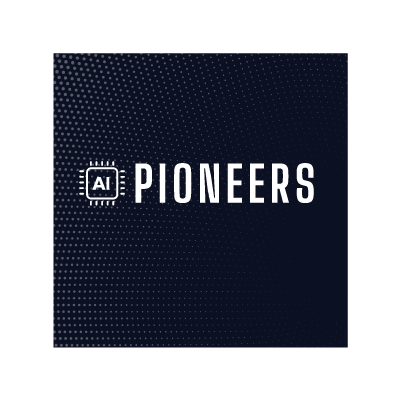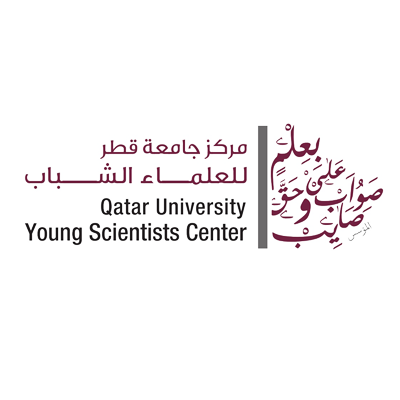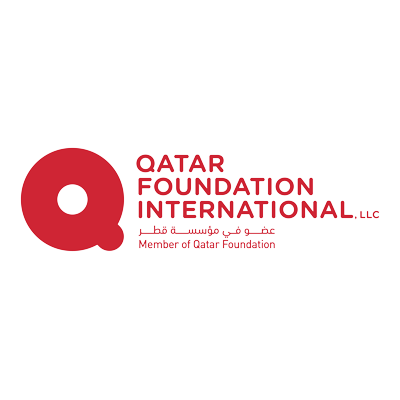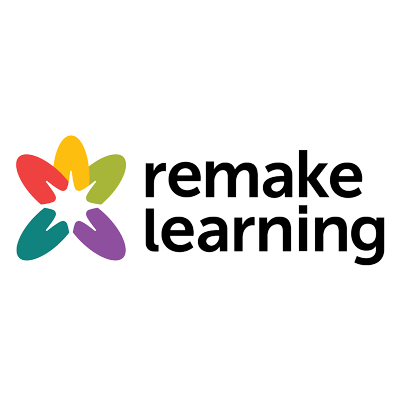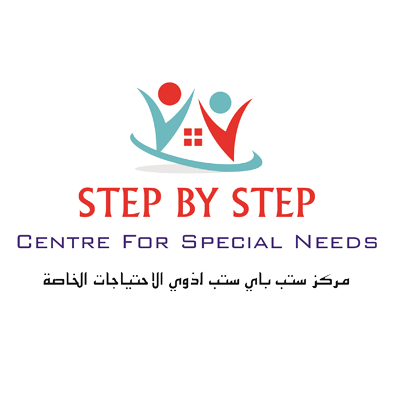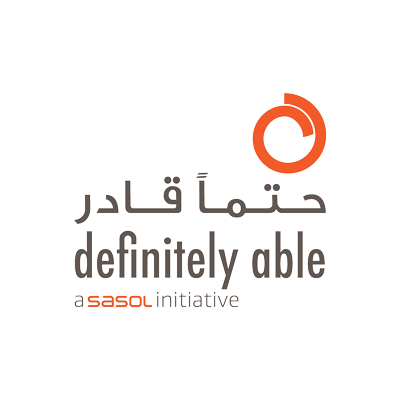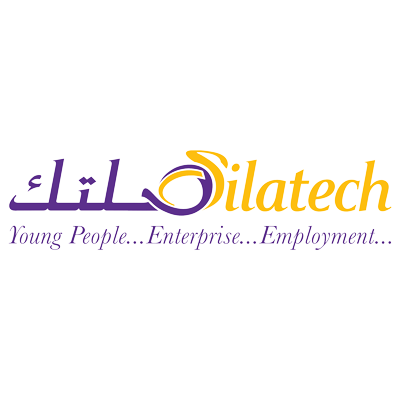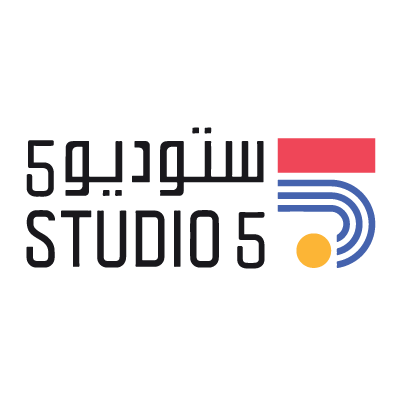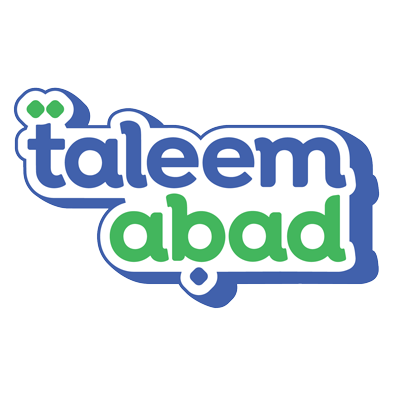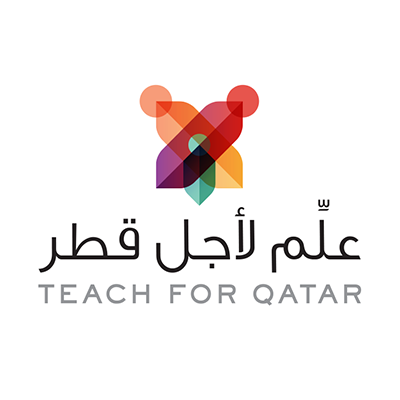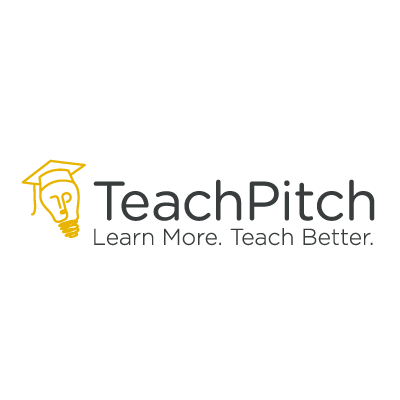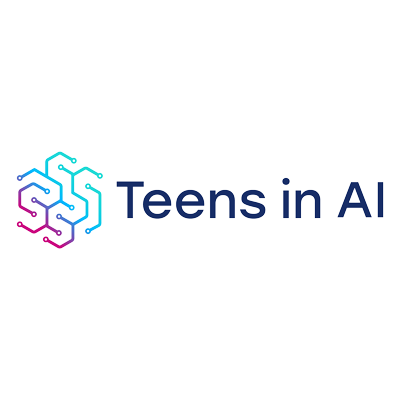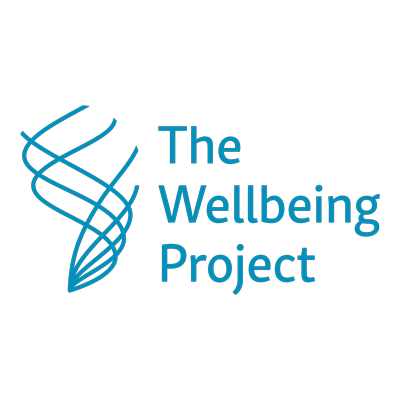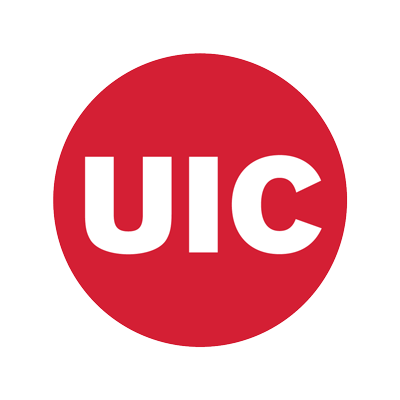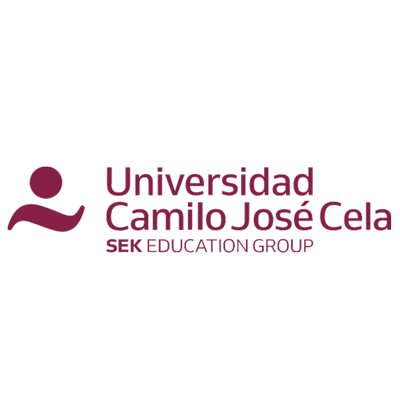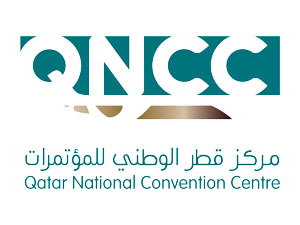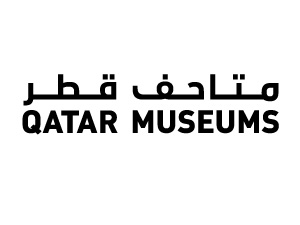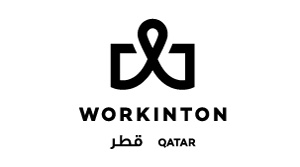WISE 11
This 11th edition of the WISE Summit explores the theme
of “Creative Fluency: Human Flourishing in the Age of AI.”
The emergence of AI challenges our traditional understanding of creativity and raises profound questions about the future of education in a world still grappling with persistent legacy issues around teacher shortages, limited access to formal learning among vulnerable populations, poor learning outcomes even in developed nations, and a disconnect between higher education and workforce needs.
In this context, the Summit invites the WISE community to debate and discuss the topics that are reshaping our education landscape, including the importance of computational literacy, the promise of personalized learning for all, new AI-integrated pedagogical approaches that enhance the creative potential of students and teachers, and issues of equity and embedded values in the design, dissemination, and implementation of emerging technologies for education around the world.

What to expect at WISE 11

100+
speakers
Local, regional, and international experts will share their insights

20+
core sessions
and a variety of engaging experiential activities

Hands-on
learning
through participative sessions for teachers and learners

Bilingual
program
with simultaneous translations available in Arabic and English
Speakers
Program Themes

Scaling for Equity and Access:
Is AI the answer to the perennial challenge of providing quality education for all?

Classrooms of the Future:
Will AI necessitate a fundamental rethink of teaching and learning?

Rethinking Higher Education and Jobs in an AI-Driven World:
How do we equip our graduates with future-resilient skills?

Building Ethical AI:
How can we ensure that AI tools reflect core societal values and culture?

AI and Digital Sovereignty:
How can education systems cultivate autonomy in the face of emerging AI superpowers?

Systems Transformation:
From curriculum design and teaching methodologies to technology integration and administration, how do we reform education to create more equitable, inclusive, and effective learning environments?
Summit Program
- Nov 28
- Nov 29
09:00-10:00
WISE Opening Plenary
Please note that doors of the theater will close between 08:30-09:00.
Speakers:
- Nina Schick, Founder of Tamang Ventures Limited
- Aidan White, Founder of Ethical Journalism Network
- WISE Prize Laureate: Safeena Husain, Founder and Board Member of Educate Girls
- MC Abdul, Artist
The Opening Plenary will kick off WISE 11 with thought-provoking keynote speeches that set the scene for the big ideas we will be exploring over the two days of the Summit. Tune in for the reveal of the 2023 WISE Prize for Education.
WISE Awards Plenary
Please note that doors of the theater will close between 15:45-16:15.
Keynote speaker:
- Jeffrey Sachs, University Professor and Director of the Center for Sustainable Development, Columbia University
Each year, the WISE Awards recognize and promote six innovative projects that address global educational challenges and bring positive change to societies and communities. Join us in celebrating the creativity, ingenuity, and humanity of each of our 2023 Award Winners:
- Ana Chirita, Tekwill in Every School (Moldovan Association of ICT Companies ATIC, Moldova)
- Armando Ali, International Common Assessment of Numeracy ICAN (PAL Network, Kenya)
- Layisha Perhati, NaTakallam: A Different Kind of Language Learning (NaTakallam, USA)
- Marianne Stone, Ahlan Simsim (International Rescue Committee (IRC) – in partnership with Sesame Workshop, Jordan)
- Luis Camargo, Nature-Based Education Networks (OpEPA, Colombia)
- Siddhant Sachdeva, Catalyzing ECE at Scale - Rocket Learning (Ekho Foundation, India)
In our three parallel Thematic Zones, we deep dive into the pressing issues defining the future of education. Each Theme is explored through three formats: Panels to frame the debate and highlight priority issues; Masterclass Sessions to deepen understanding and provide perspectives on possible solutions; Policy Roundtables to bring together education stakeholders in defining actionable policy agendas.
(Room 105)
Classrooms of the Future
Will AI necessitate a fundamental rethink of teaching and learning? Will AI deliver on the promise of personalized learning? How can AI enhance the quality of teaching methods and practices?
Redefining Learning: Transforming K-12 Education with Computational Thinking for the Age of AI
Speaker:
- Conrad Wolfram, Co-founder & Strategic Director, Wolfram Group; Founder, computerbasedmath.org
With AI reshaping industries and workplaces, understanding the core principles of computational thinking is no longer an option but a necessity for students and educators alike. Wolfram demonstrates how traditional education often overemphasizes manual calculations, which are time-consuming and increasingly irrelevant in today's world, where computers excel in precision and speed. He passionately argues for a shift towards prioritizing problem-solving and the utilization of computational tools to address real-world challenges. Explore the applications and the seamless integration of computational thinking into K-12 classrooms, empowering students with the skills needed for complex problem-solving in the age of AI.
Classrooms of the Future: Will AI Necessitate a Fundamental Rethink of Teaching and Learning?
Speakers:
- (Moderator) Joe Clement, Teacher and Author of “Screen Schooled”
- Pak Tee Ng, Associate Professor, National Institute of Education, Nanyang Technological University, Singapore
- Isabelle Hau, Executive Director, Stanford Accelerator for Learning
- Cindy Mi, Founder & CEO, VIPKid
- Claudia M Urrea, Senior Director, MIT Open Learning
As AI weaves its way into every facet of our lives, educators and practitioners are grappling with its integration into classrooms. The pressing questions arise: Should teachers wholeheartedly embrace AI, and will it necessitate a reevaluation of what they teach, how they teach it, and why? Must curricula evolve to meet the ever-changing demands of the future? What transformative possibilities does AI hold for personalized learning, benefiting both students and educators? Join our panel of experts as they delve into strategies for educators to future-proof their classrooms and navigate the challenges presented by this new era in education.
Charting the Future of Education: Roadmap for AI Integration in the Classroom
Speakers:
- (Moderator) Aiman Erbad, Associate Professor and Head of Information and Computing Technology, HBKU
- Dalia Ibrahim, CEO, Nahdet Misr Group
- Carla Aerts, Independent Consultant, Futures of Education
- Wendy Kopp, CEO & Founder, Teach for All
- Mark Kabban, Faculty Director of Master’s in Education Leadership, High Tech High Graduate School of Education
- Mervi Jansson, CEO, Omnia Education Partnerships
- Mehdi Benchaabane, Director, Qatar Academy Doha
- Eman Al Muhannadi, Director of the Training and Educational Development Center, Ministry of Education and Higher Education of Qatar
- More speakers to be announced shortly
- Taha Bawa, CEO & Co-Founder, Goodwall
- Lama Nassif, Associate Teaching Professor, Carnegie Mellon University in Qatar
This roundtable will be an active exploration of AI's role in education. Ministers, policy makers, educators, and teacher training providers will engage in in-depth discussions on key questions such as personalized learning, early intervention, and the impact of emotion and engagement analysis on teaching quality and outcomes. We will also address critical aspects such as safeguarding privacy and security in AI integration, preventing atomization of learning, and how AI can empower teachers. The roundtable's insights will culminate in a strategic policy blueprint, guiding the responsible integration of AI into educational settings and shaping the future of education.
(Room 103)
AI and Digital Sovereignty
How can education systems cultivate autonomy in the face of emerging AI superpowers? How do we ensure diversity in AI research, design, and development? How can we guarantee equal access to critical information infrastructure and technologies for the advancement of education?
Critical Thinking in the Digital Age: AI, Information Literacy, and the Battle Against Disinformation
Speaker:
- Marc Owen Jones, Associate Professor in Digital Humanities and Societies, Hamad Bin Khalifa University (HBKU)
As online digital discourse and globalised information sources increasingly exert influence over our education landscape, new strategies are necessary to discern credible information and foster critical thinking skills in learners and educators alike. HBKU Professor Marc Owen Jones delves into the challenges faced by education systems in identifying, combating, and debunking disinformation and misinformation, and provides keys to fortifying educational systems against the challenges posed by AI-generated propaganda and deep fakes. Drawing from real-world examples and the crisis in Palestine, this Masterclass provides a timely analysis of disinformation campaigns and media bias while addressing important questions around information literacy as well as access to essential infrastructure and technologies for education.
Empowering the Global South: Capacity Building for Self-Determination
Speakers:
- (Moderator) Ahmed Elmagarmid, Acting Vice President of Research and Executive Director, Qatar Computing Research Institute
- Pelonomi Moiloa, CEO, Lelapa AI
- Yaser Bishr, Digital Transformation Senior Advisor, Chairperson Office of Qatar Museums
- Nariman Moustafa, Research Scholar, The Brookings Institution
The world’s nations and regions possess distinct identities, resources, and challenges that demand contextually tailored solutions. Critical information infrastructure at the regional level plays an important role in safeguarding cultural diversity and the capacity for self-determination in a world dominated by influential technological actors with global reach. Join us for a thought-provoking panel discussion as experts delve into the issues surrounding digital sovereignty and AI. The conversation will address key questions such as: How can the Global South assume a more influential role in shaping the AI discourse? What are the essential components of national digital sovereignty strategies? What are effective approaches to decolonizing data and ensuring equitable representation? In an era where our learning experiences are increasingly reliant on automated systems, can we maintain the integrity of local communities and the autonomy of the individual?
Navigating the Impact of AI Superpowers: How to Build an Inclusive Global AI Landscape
Speakers:
- (Moderator) Carine Allaf, Senior Programs Advisor, QFI
- Hayfa Al-Abdulla, Innovation Director, Qatar Foundation
- Yaser Bishr, Digital Transformation Senior Advisor, Chairperson Office of Qatar Museums
- Natasa Milic-Frayling, Research Director, Qatar Computing Research Institute
- Safwan Masri, Dean, Georgetown University Qatar
- Nariman Moustafa, Research Scholar, Brookings Institution and EdTech Hub
- Kimy Moloney, Assistant Professor, HBKU College of Public Policy
- Anne Molero, Chief Government Officer, Teach For All
The US and China continue to lead the global race for AI dominance, with the EU as a close third. This competitive environment raises legitimate concerns around the limitations of AI technologies in reflecting diverse cultural perspectives, as well as bringing important questions to the fore around the impartiality and embedded values in the models and datasets being used to build AI applications.
This roundtable will discuss how AI-driven technologies can be implemented for the greatest benefit to society, and explore how nations can shape their AI strategies while contributing to an inclusive global AI landscape that reflects and respects unique cultural and linguistic identities.
(Room 104)
Building Ethical AI
How can we ensure that AI tools reflect core societal values and culture? How do we equip education systems for literacy and awareness around AI risks? How can stakeholders collaborate to develop, implement and evaluate ethical AI frameworks?
Building Ethical AI: How Can We Ensure That AI Tools Reflect Core Societal Values?
Speaker:
- Nina Schick, Founder, Tamang Ventures Limited
This masterclass will discuss how stakeholders can collaborate to develop, implement, and evaluate ethical AI frameworks. How can we prevent societal disruptions including data privacy, bias, fairness, and accountability? The session will also give recommendations to educational systems to manage the likely proliferation of AI-generated misinformation and disinformation and ensure literacy and awareness around AI risks.
Can We Trust AI to Build Ethical Education Futures?
Speakers:
- (Moderator) Natasa Milic-Frayling, Research Director, Arabic Language Technologies, Qatar Computing Research Institute
- Alvin Graylin, Global VP of Corporate Development, HTC
- Shingai Manjengwa, Head of AI Education, ChainML
- Karim Ginena, Founder, RAI Audit
- Chibeza Agley, CEO, Obrizum
As Generative AI continues to integrate into our lives, it is more important than ever to ensure that we can trust these systems to uphold the values at the center of our education institutions and systems. With that in mind, this panel will explore the types of frameworks that we can put in place to ensure that our core education principles - inclusivity, equity, and transparency - are safeguarded against bad actors and unethical practices.
Writing the Rules: What Does the Roadmap to Ethical AI Look Like?
Speakers:
- (Moderator) Ana Rold, Founder and Publisher, Diplomatic Courier
- Leanne Robers, Cofounder and Co-CEO, She Loves Tech
- Eman Al Kuwari, Director of Digital Innovation Department, Ministry of Communications and Information Technology
- Pelonomi Moiloa, CEO, Lelapa AI
- Claudia Urrea, Senior Director, MIT Open Learning
- Marc Owen Jones, Associate Professor in Digital Humanities and Societies, Hamad Bin Khalifa University (HBKU)
- Karim Ginena, Founder, RAI Audit
- Fernando Díaz del Castillo, Chief Learning Officer, Mentu
- Thomas Banchoff, Vice President for Global Engagement, Georgetown University
During this roundtable, innovation leaders take us on the critical path of moving from observation to policy. What are the ethical standards we need to uphold as AI technologies transition from the lab to classrooms to ensure inclusivity, data security, and privacy? How can we develop regulatory frameworks that foster fairness and equal access, address educational disparities, and empower educators through training? Join us in understanding the inextricable link between ethical AI and a future-proof education - and in building a roadmap for a more sustainable and fair learning ecosystem.
(Room 106)
Join the authors of WISE Research as they present their latest reports addressing critical education issues around the globe, and propose action-oriented recommendations and policy guidance for stakeholders in the education industry.
Qatar’s EdTech Testbed: Challenges and Opportunities for Building Collaborative Partnerships toward Innovative, Tech-Enabled Teaching
Speakers:
- Seungah Lee, Senior Lecturer of Social Research and Public Policy, New York University Abu Dhabi
- Victoria Basma, Head of Programs (Edtech), WISE
This roundtable will first and foremost focus on the experience of local practitioners and school leaders when it comes to the adoption and implementation of EdTech in the classroom. The intent of delivering insights of this kind will be to provide stakeholders involved in policy from Qatar Foundation and the Ministry of Education a pragmatic examination of how existing policies are working, or not in some cases, and explore potential avenues for the national strategy and local policy to reflect these takeaways.
Collaborative Leadership for Transforming Education in Learning Ecosystems
Speakers:
- Eva Keiffenheim, Education System Change Consultant
- Dominic Regester, Director of the Center for Education Transformation, Salzburg Global Seminar
- Asmaa Alfadala, Director of Research, WISE, Assistant Professor, College of Public Policy (Hamad bin Khalifa University)
- Anthony Mackay, Board Co Chair, National Center on Education and the Economy
Developed through an 18-month collaborative effort with education practitioners worldwide, this report explores collaborative leadership for transforming education in learning ecosystems. Building on the previous two reports, “Education Reimagined: Leadership for a New Era” and “Education Reimagined: Leadership for Transformation” by the WISE Agile Leaders of Learning Innovation Network (ALL-IN), this report presents and analyzes a set of case studies that demonstrate the new practices and approaches in a wide range of contexts. This report contributes to a deeper understanding of the type of leadership needed to cultivate healthy, thriving, and equitable learning ecosystems that benefit both present and future learners.
Post-Pandemic National Educational Investments: School Leadership Development for Innovative Learning Designs
Speakers:
- Asmaa Alfadala, Director of Research, WISE, Assistant Professor, College of Public Policy (Hamad bin Khalifa University)
- Shelby Cosner, Professor and Director, Center for Urban Education Leadership, University of Illinois Chicago
This session will share insights about the creation and sustainability of a public-private partnership for the design and enactment of school leadership development programs. This session will thoroughly explore the public-private partnership and the factors that support its formation and durability. This session will also explore the key elements of the school leader learning design. It will share impact data from this program and make recommendations that are relevant for the Ministry of Education and other governmental educational administrators, designers and providers of school leadership development, leaders of NGOs, philanthropic organizations, and individuals interested in school leadership development and public-private partnerships.
Levering the Evidence on the Relation of Teacher Well-bring to Student Well-Being and Learning Outcomes AND Teacher Well-Being Professional Learning Community’s Official Launch
Speakers:
- Denise Buote, Researcher/Evaluator UIC
- Ahmed Baghdady, Manager, International Agreements, University of Waterloo
- Maryam Al-Khalaf, Associate, WISE
- Fernanda Martinez, Networks Manager, The Wellbeing Project
In this presentation, findings from an extensive scoping review that explores the complex relation between educator well-being and student well-being and learning will be presented. Complementing this work are rich perspectives derived from interviews conducted with educators and students in five countries. This research sheds light on the critical link shaping the educational experiences of both educators and students, offering valuable insights and paving the way for future research directions.
10:30-11:45
Educate A Child: 10 Years Anniversary Celebration Event: Re-Ignite Action to Transform the Lives of Those Left Behind
Speakers:
- (Moderator) Vee Kativhu, Girls' Education Activist, Empowerment Youtuber & Founder of Empowered By Vee, Young Leader of the SDGs at the United Nations
- HE Ms Claudiana Ayo Cole, Minister of Basic and Secondary Education, The Gambia
- Luis Benveniste, Global Director, Education, The World Bank
- Dua Batool, Assistant Teacher/Former EAC & Alight Beneficiary
- Fatima Tarannum, Senior Officer, Pakistan Alliance for Girls Education (PAGE)
- Vanessa Pacheco, Pies Descalzos (Barefoot) Foundation, Colombia
- Nhial Deng, Refugee, Youth Advocate & former EAC/UNHCR beneficiary
Educate A Child, a global programme of the Education Above All Foundation (EAA) joined the international education landscape at the end of 2012 with an ambitious goal of enrolling more than 10 million children into quality primary education. In December 2021, EAC and its partners had achieved and surpassed its original target by enrolling over 10.7 million out of school children (OOSC) into quality primary education around the world. Today, this number stands at 14.5 million.
To celebrate EAC’s 10-year anniversary, Educate A Child plans to host an event to convene stakeholders to celebrate the achievements of EAC and its partnerships, and to encourage a renewed global commitment to reducing the number of primary children out of school.
Greening Education: Critical Elements for Transformation – An Intergenerational Dialogue
Speakers:
- Stefania Giannini, Assistant Director-General for Education, UNESCO
- Max McCabe, COO, Education Outcomes Fund
- Mercy Musomi, Executive Director, Girl Child Network (GCN)
- Brighton Kaoma, Global Director, SDSN Youth
- Humphrey Mrema, Youth4Climate
- Nisreen Elsaim, UNSG's Youth Advisory Group on Climate Change
This Intergenerational Dialogue will discuss the critical elements required to transform and ‘green’ education in order to effectively respond to the global climate crisis and equip all learners with critical competencies covering not only knowledge, but also social and emotional awareness and actions, including critical thinking and collaboration.
Panel Discussion with representatives from UNESCO, EOF, Girl Child Network & Youth Activists working in Climate Action.
Areas of Focus:
- The climate challenge and why greening education is critical
- Greening Education – what are the critical elements?
- Showcase global best practice case studies
- The potential role of AI in Greening Education
- Recommendations for the future of Greening Education
10+ Years of EAA Experience – Lessons on “Re-Inventing Education” for Inclusion and Protection from Attack
Speakers:
- Stefania Giannini, Assistant Director-General for Education, UNESCO
- Khalifa bin Jassem Al-Kuwari, Director General, Qatar Fund for Development
- Bilal Barakat, Independent Researcher, Vienna Institute of Demography (VID) and the International Institute for Applied Systems Analysis (IIAS)
- Luis Benveniste, Global Director of Education, The World Bank
- Robert Jenkins, Director, Education and Adolescent Development, Programme Group, UNICEF
- Christina Wille, Director of Insecurity Insight and Aid in Danger Project
- Jerome Marston, Acting Director, Global Coalition to Protect Education from Attack
- Seid Aman, Country Director, imagine1day
- Tariq Cheema, Country Representative, Alight Pakistan
- Mary Joy Pigozzi, Executive Director, EAA’s Educate A Child Programme
- Maleiha Malik, Executive Director, EAA’s PEIC Programme
Two of Education Above All’s longstanding programmes, Educate A Child (EAC) and Protecting Education from Insecurity and Conflict (PEIC) will analyze and synthesize their respective successes and challenges, placing them in the global context with a view to a more sustainable future.
Through the launch of a new publication, the two programmes will explain why “the needle has seemingly not moved” in the areas of enrolling out of school children (OOSC) at the primary level and in protecting education from attack. These reflections will reveal where and how progress has been made, or not, and the implications for further impact.
10:30-11:45
Artificial Intelligence and Access to Higher Education: The Role of AI in the Effort to Provide Inclusive, Equitable Access to Higher Education for the Most Marginalized
Speakers:
- (Master of Ceremonies) Khalid Al-Kawari, Youth Advocate, Education Above All
- (Moderator) Hana Elshehaby, Youth Advocate, Education Above All
- Jennifer Dwyer, Technical Senior Manager, Al Fakhoora, Education Above All
- Lauren Goodlad, Distinguished Professor of Humanities, Rutgers University
- Jonah Kokodyniak, Senior Vice President, Program Development and Partner Services, Institute of International Education
- Mujtaba Naqib, Qatar Scholarship for Afghans scholar, Bard College
Artificial Intelligence is among the most frequently debated topics in higher education. Many believe AI has the potential to revolutionize education, including access and inclusion for underserved youth. However, we cannot overlook the ethical considerations of AI, and the potential it has to contribute to discrimination, inequality, and exclusion. This panel brings together representatives from the higher education and development sector, as well as affected youth, including Education Above All’s Qatar Scholarship beneficiaries, to discuss the intersection of AI and access to higher education for the most marginalized, including forcibly displaced populations, specifically the role of AI in application processes.
Youth and the Creative Economy: Leveraging Technology for Youth Economic Empowerment in Developing Countries
Speakers:
- Alia Al-Khatar-Williams, Deputy Director, Division for Resilience and Solutions, UNHCR
- Ayaz Karimov, Co-Founder & Game Designer, Inskillz
- Taha Bawa, CEO & Co-founder, Goodwall
- Ghada Al Subaey, Fashion Designer and Entrepreneur
The creative economy is not only one of the world’s fastest growing sectors, but also a transformative sector in terms of income generation and job creation. Creative industries present opportunities for jobs, employment opportunities, promotion of innovation and they heavily contribute to societies’ well-being.
The panel titled “Youth and the Creative Economy: Leveraging Technology for Youth Economic Empowerment in Developing Countries” will highlight the need to equip youth in the developing world with fundamental technical and soft skills, and access to digital infrastructure, and finance to be able to harness the benefits of e-commerce and turn their creativity into livelihoods.
Pakistan Youth Leadership Initiative (PYLI) – ROTA-EAA-British Council Pakistan Panel Discussion & Project Signing
Speakers:
- (Moderator) Wajiha Irfan, Head of Non-Formal Education, British Council Pakistan
- Abdulla Al Abdulla, ROTA-EAA Executive Director
- Ali Malik, Deputy Secretary Prime Minister’s Youth Programme, Government of Pakistan
- Saba Naz, Media Manager, Pakistan Higher Education Commission
- Abdullah Saquib, Executive Director, VIAMO Pakistan
- Taimoor Siddiqui,Youth Climate Leader
- Rutaba Tariq,Youth Climate Leader
- Tareq Al-Bakri, ROTA Programme Specialist
Official ROTA-EAA-British Council Pakistan PYLI Project Signing Ceremony – Speakers:
- Abdulla Al-Abdulla, Executive Director of Reach Out to Asia (ROTA)
- James Hampson, Country Director, British Council Pakistan
This session will include a Panel Discussion with representatives from ROTA-EAA, British Council Pakistan and Government of Pakistan to showcase the project methodology, especially the digital component. This will be followed by all parties participating in a Project Agreement Signing Ceremony.
Panel Discussion with representatives from British Council Pakistan, the Government of Pakistan, VIAMO Pakistan and ROTA-EAA.
10:30-11:45
AI in Education: Early Innovations Showcase
Speakers:
- Isabelle Hau, Executive Director, Stanford Accelerator for Learning
- Claire Mongeau, Co-Founder & CEO, M-Shule
- Muhammad Danish, Team Lead - AI Deployment, Taleemabad
- Revanth Voothaluru, Global Implementations Project Manager, Learning Equality
- Yasmeen Alzabalawy, Regional Digital Projects Coordinator, International Rescue Committee
This session will bring together organizations who are already leveraging AI in education to showcase their early innovations and ideas stemming from AI-based pilots. The session aims to foster dialogue and collaboration, discuss the importance of prioritizing responsible and judicious utilization of AI, and identify opportunities for improvement and further exploration in this field.
Based on the traditional Arabic ‘majlis’ gathering space for meeting, sitting, and talking, the WISE Majlis is where informal interactions happen alongside spirited discussions and presentations, workshops, and networking activities.
(Central Foyer)
Sit in on live podcasts where we talk to the world’s leading minds about the future of education.
Podcast – 3 Skills We Should Prioritize For the AI Age
Speakers:
- (Moderator) Elyas Felfoul, Director of Policy Development & Partnerships, WISE
- Mary Burns, Invited Researcher, Escola Superior de Educacao de Paula Frassineti
- Kian Katanforoosh, CEO and founder, Workera
What are the key skills we need to craft AI-resilient minds? In this episode of WISE On Air, Kian Katanforoosh and Mary Burns navigate the nexus of higher education and burgeoning AI-driven job markets. As a leading Computer Science Lecturer at Stanford as well as Founder & CEO of Workera, Kian holds a birds eye view into AI’s complex realms. Meanwhile, Mary works across the globe and has over a decade of teaching experience as a program designer, evaluator, curriculum designer, and policy advisor, all with a focus on technology and teacher pre- and in-service education.
Join us as we aim to pinpoint 3 essential skills to thrive in an AI-centric future.
Podcast – Redefining Education in Times of Crisis
Speakers:
- (Moderator) Selma Talha Jebril, Manager, WISE Research, WISE
- Jeffrey Sachs, University Professor and Director of the Center for Sustainable Development, Columbia University
Can education truly be a beacon of hope and change in the midst of a crisis? And to what extent do we need to fundamentally rethink its utility? In this special episode of WISE On Air, we sit down with Dr. Jeffrey Sachs, a renowned economist and advocate for sustainable development, to explore this pivotal question.
Join us for a thought-provoking discussion that not only highlights the challenges but also uncovers the opportunities for education to act as a catalyst for resilience and equity in our dynamic world.
Podcast – Pioneers x WISE On Air - Computation for Everyone: AI & Education
Speakers:
- (Moderator) Nina Schick, Founder, Tamang Ventures Limited
- Conrad Wolfram, European co-founder/CEO of The Wolfram Group
Podcast – Doha Debates x WISE On Air: Who Can Best Ensure AI is Accessible to Every Student?
Speakers:
- (Moderator) Rawaa Augé, Presenter, Al Jazeera
- Louka Parry, CEO + Founder, The Learning Future
- Isabelle Hau, Executive Director, Stanford Accelerator for Learning
- Nadeem Nathoo, Founder, TKS
Artificial intelligence is already in the classroom, where students regularly use tools like ChatGPT to help with—or even write—papers and other schoolwork. Many teachers and institutions believe that AI technology can benefit their students, but there are also concerns about whether unequal access to these new AI tools will deepen existing inequalities within communities, between countries, and across education in general. So who is best placed to deliver the benefits of AI to students, and, crucially, to ensure these advantages are available to everyone?
(Central Foyer)
Listen and participate in lively discussions by and for youth about the issues shaping the next generation. What will it take to build a 21st century of collective action, compassion, and creative self-expression?
Inclusive Education: Enhancing Personalized Learning Experiences for Students with Disabilities
Speakers:
- (Moderator) Warda ElKhalifa, Associate, WISE
- Nawaal Akram, Founder, Equal Access
- Sabika Shaban, Founder, Qatar Disability Resource (QADR), Hamad Bin Khalifa University (HBKU)
- Aisha Al-Amari, Co-Founder and Partner of Autism Parents Platform, Autism Parents Platform
This session will address the question of how we leverage a broad palette of educational tools to create personalized learning experiences for students with disabilities. EdTech and AI educational tools have advanced rapidly in recent years, holding promise for delivering quality education in an inclusive and accessible learning environment.
Cultural Perspectives of Arabic Learners in Classrooms
Speakers:
- (Moderator) Odette Yidi, Executive Director, Institute of Arab Culture of Colombia
- Amy Marie Abela, PhD Student and Visiting Assistant Lecturer, University of Malta
- Imane El Guennouni, Research Assistant & PHD Candidate, Friedrich Alexander University Erlangen/Nürnberg
- Nayib José Chalela Ambrad, Lawyer
This session is organized in partnership with Qatar Foundation International (QFI).
With its rich cultural and historical significance, the Arabic language has a vital role to play as a living language on the international stage. Our panel discussion aims to bring forward different perspectives of Arabic learners from diverse cultural backgrounds and socio-cultural contexts. We will highlight commonalities in their commitment to Arabic, the challenges they had to overcome along their learning journey, and how they have turned these challenges into opportunities in their professional and personal lives.
AI and the Challenges of Education and Ethics
Speakers to be announced soon.
This session is organized in partnership with Akhlaquna. It will be available in Arabic only.
With AI playing an increasingly prominent role in education, this session engages with young voices on the value-driven aspects of AI and addresses the pressing questions of how to safeguard our core societal values and culture in an ever-evolving digital landscape. It will bring together a diverse range of young perspectives, including the recipients of the Akhlaquna Award, which aims to reinforce the connection between science and morality, and to promote the message of positive behavior and ethical conduct as the foundation for success in all facets of life. Participants will also tackle subjects such as exploring the effective use of AI within the educational process, identifying potential risks, and ethical principles for interacting with AI.
Youth Voices on Leading Innovation in Education – STEM, Community Service and Homeschooling
Speakers:
- (Moderator) Fatima El Mahdi, Manager of Student Enrichment, Qatar Foundation
- Shoug Khozestani, Student, Qatar Foundation
- More speakers to be announced shortly.
This session is organized in partnership with Qatar Foundation's Pre-University Education.
Innovation in education comes with significant socio-economic and cultural challenges. The emergence of AI further highlights the urgency of reshaping education to equip the younger generation for the rapidly transforming world of work and to adopt newly valuable skills.
How can young people step into a leadership role and prepare for their future in this changing educational environment? Explore the stories of three dynamic young leaders in STEM, leadership, and community service, and discover how they have crafted a foundation of adaptable skills, advanced cognitive abilities, effective decision-making, and socio-emotional skills to shape themselves and their communities.
(West Foyer)
For classes of 25 students (pre-registration for schools required). Experiential learning workshops with immersive activities featuring the latest learning tools that foster creativity, collaboration and experimentation.
| 10:30-11:15 | – Student session |
Peer-to-peer workshops. Join fellow practitioners for a creative professional development experience, featuring demonstrations of innovative pedagogical approaches and AI tools.
| 11:30-12:15 | – Practitioner session 1 |
| 12:30-13:15 | – Practitioner session 2 |
| 13:30-14:15 | – Practitioner session 3 |
Learning Lab - The Moral Lab: Designing Ethical AI (Student session)
Speakers:
- Ulises Brengi, Learning Experience Designer, Eidos Global
- Augustín Alejandro Batto Carol, Founder & Strategy Lead, Eidos Global
This session is organized in partnership with Eidos.
In this 45-minute workshop, we explore what ethical AI implies in terms of design, implementation, and use. Aimed at youth, the session fosters open discussion on the pivotal role of inclusive education in shaping ethical considerations within AI. Uncover the connection between education and responsible AI development, emphasizing the crucial need for human oversight in decision-making.
Learning Lab - Designing Engaging Learning Environments for Students with Autism (Practitioner session)
Speaker:
- Aisha Al Fadhalah, Speech-Language Pathologist, Autism Parents Platform
This session is organized in partnership with Autism Parents Platform.
This workshop is designed for early intervention and education professionals (preschool to kindergarten) and explores the creation of engaging learning environments for students with Autism. By introducing teachers to classroom engineering and strategies that enhance language and social communication skills, the workshop aims to expand educators' understanding of how to support experiential learning for Autistic students using a multi-sensory approach.
Learning Lab - Empowering Creativity: Exploring Design Thinking and AI in Project Based Learning (Practitioner session)
Speaker:
- Jere Keskinen, Global Curriculum and Instruction Lead, Arkki International
This session is organized in partnership with Arkki.
This session explores design thinking and artificial intelligence as tools for fostering creative learning and creativity. Aimed at educators, including K-12 teachers, school leaders, and policymakers, the workshop introduces and facilitates discussions on AI-enhanced design projects that can serve as a platform for interdisciplinary student-centered learning and the cultivation of creative skills. Participants will take part in a brief “Creative Splash” design workshop, sparking creativity in an enjoyable and unexpected way that promotes diverse possibilities. The workshop serves as a catalyst for discussing creativity's role in education. Educators gain insights into planning creative design projects, establishing supportive learning environments, and enhancing projects with innovative tools like text-to-image AI technologies. Ultimately, participants are encouraged to share reflections and engage in discussions about the realm of creative learning and creativity.
Learning Lab - Values and Technology: Empowering Schools Towards A Self-Determined Artificial Intelligence Implementation Protocol (Practitioner session)
Speakers:
- Nuria Vives, Teachers Professional Development Programmes Lead, La Caixa Foundation
- Marta García Matos, Education Manager, “la Caixa” Foundation
- Greg Ross, Associate Professor, IOE, University College London
This session is organized in partnership with “La Caixa” Foundation.
This session is designed to aid teachers and educational leaders in creating a human-centered AI implementation protocol that aligns with the cultural values of their institution. We will provide models, processes, and discussion tools that participants can take back to their schools to foster a shared, school-wide approach to AI. Participants will be provided with reference materials on AI and Education, with a special emphasis on empowering them to make evidence-based decisions. Participants will acquire confidence to lead discussions and processes that encourage a comprehensive approach to AI within their school communities. While the session is particularly relevant to educational leaders, teachers from all levels are encouraged to participate.
(West Foyer)
For classes of 25 students (pre-registration for schools required). Experiential learning workshops with immersive activities featuring the latest learning tools that foster creativity, collaboration and experimentation.
| 10:30-11:15 | – Student session |
Peer-to-peer workshops. Join fellow practitioners for a creative professional development experience, featuring demonstrations of innovative pedagogical approaches and AI tools.
| 11:30-12:15 | – Practitioner session 1 |
| 12:30-13:15 | – Practitioner session 2 |
| 13:30-14:15 | – Practitioner session 3 |
Learning Lab - Empowering Education: Unleashing Skills Development with AI (Student session)
Speakers:
- Azza Abouhashem, Research Assistant, Qatar University
- Rana Abdou, Research assistant, Qatar University Young Scientists Center
- Aisha AlThani, Systems & Applications Programming Engineer, The Civil Services and Government Development Bureau
Join our workshop for middle school students, diving into key AI and machine learning concepts. Through interactive games, explore the history and transformation of AI, from basics to today's advancements. Activities include a lively educational video on AI pros and cons, and card games to familiarize learners with the tech’s applications. The objective: empower students to leverage AI models in their education, fostering practical skills development.
Learning Lab - Empowering Humans: SFERA Unlocking Creativity for a Transformative Teaching Experience in the Age of AI (Practitioner session)
Speakers:
- Héctor González Álvarez, Teacher, SEK Education Group
- Paola Arjona Garza, Project manager, UCJC/ Sfera Experience
- Ignacio Sell, University Ombudsman of the Camilo José Cela University. Director of Innovation and Social Impact Projects, Camilo José Cela University
This session is organised in partnership with Fundación and Camilo José Cela University. It delves into the transformative capacity of SFERA, a collaborative space for social innovation in which interdisciplinary students belonging to Ibero-American universities can work together to tackle challenges that involve social and environmental transformations in favour of the local or global community.
Geared towards educators across various levels, this workshop advocates for the cultivation of creativity and human values, asserting their efficiency in addressing the current challenges presented by artificial intelligence in education.
The workshop explores how SFERA principles inspire innovative curriculum design, dynamic lesson planning, and active learning projects, ultimately enhancing educators' self-awareness, collaborative skills, and the ability to create meaningful learning environments. It aims to equip participants with key learning outcomes for effective teaching in the evolving educational landscape.
Learning Lab - Elevating Education with Technology: Unleashing the Potential of ChatGPT and Adobe Express for Innovative Classroom Experiences (Practitioner session)
Speakers:
- Sara Tariq Saleh, Science teacher, Teach For Qatar
- Shahd Hussein, Science teacher, Teach For Qatar - Areefaa primary school
This session is organized in partnership with Teach for Qatar.
This workshop aims to equip participants with the knowledge and tools necessary to harness the potential of technologies like ChatGPT and Adobe Express to enhance the quality of education in classrooms.
Spanning diverse educational contexts, the session demonstrates how ChatGPT interacts naturally with humans and can be used in educational landscapes to answer queries, craft articles, generate creative content, and tailor personalized learning experiences. It also guides teachers and learners in efficient content creation through Adobe Express, emphasizing the use of technology for sustainable learning and environmental awareness.
Participants will learn to save time, consider individual differences, and develop professional skills, ensuring effective integration of AI technologies in education. Intended for educators at all levels, this workshop fosters the creation of engaging, inclusive learning environments.
Learning Lab - AI in Education: Futureproofing Teachers and Learners (Practitioner session)
Speakers:
- Salma Waly, Head of Multilingualism, ISL Qatar, Assistant Professor, Pace University, NY, Founder, Universal Narratives
- Stéphane Cloâtre, Learning Technologies coach, International School of London Qatar
- Catherine Morgan, Technology Coach, International School of London, Qatar
This session is organized in partnership with the International School of London Qatar.
How can AI help language teachers plan and deliver effective lessons? In this session, you will learn from a research project that explored this question in an international school in Qatar. You will also get to try out some AI tools and best practices that the teachers used in their classrooms. This session is for K-12 educators who want to use AI for lesson planning and preparation, but anyone interested in enhancing teaching and learning with AI is welcome. You will learn how to use AI for lesson planning, lesson materials, and formative assessment. You will also participate in a carousel activity to practice these skills and get feedback. Join us for an interactive and hands-on session on AI and language teaching!
09:00-10:00
Education Above All Plenary – Education in Times of War
Please note that doors of the theater will close between 08:30-09:00.
Speakers:
- (Moderator) Randa Al-Dawoudi, Qatar Scholarship recipient – Gaza, Education Above All
- Jeffrey Sachs, University Professor and Director of the Center for Sustainable Development, Columbia University
- James S. Gordon, Founder and CEO, Center for Mind-Body Medicine
- Mo Amer, Palestinian-American stand-up comedian, producer and award-winning writer (Video message)
- Tino Kreutzner, Chief Operating Officer, KoBo
- Basel Hindi, AI/ Accessibility Researcher at Columbia University and Incoming AI/ML Software Engineer at Nike, Columbia University
- Athar Ahmed, Qatar Scholarship recipient – Gaza, Education Above All
The plenary will open the second day at WISE 11. By featuring several discussions, it aims to achieve three different objectives:
- Promote global awareness for the Gaza crisis through the observance of the International Day of Solidarity with Palestinian Peoples, personal testimonies, factual statistics and by promoting responsible reporting;
- Address educational recovery by upholding international humanitarian law, discussing solutions for trauma and psycho-social emotional learning, and focusing on rebuilding education in Gaza;
- Explore AI's role in promoting human rights through data accessibility and its impact on advocacy.
WISE Closing Plenary – AI for the Common Good
Keynote : Conrad Wolfram, European co-founder/CEO of The Wolfram Group
Speakers:
- Rawaa Augé, Presenter, Al Jazeera
- (Moderator) Matthew Hutson, Science Writer, The New Yorker
- HE Buthaina Bint Ali Al Jabr Al Nuaimi, Minister of Education and Higher Education, Qatar
- HE Kolinda Grabar-Kitarović, Former President, Republic of Croatia
- Jörg Dräger, Executive Director of the Board of Trustees, Kühne Foundation
- Mona Diab, Professor & Director of Language Technologies institute, Carnegie Mellon university
- Lihui Zhang, President, Caixin Media
In cultivating the next generation of leaders, thinkers, and problem-solvers, education is at the heart of our ability to shape the future to which we aspire. This panel discussion serves as a synthesis of the main themes and topics from the two days of the Summit, providing an opportunity to discuss important takeaways for harnessing the potential of education in the AI era for the benefit of all.
Our expert panelists bring insights from the fields of AI research, education, policy, philanthropy, and media to discuss questions such as: How do we foster a culture of lifelong learning that equips all levels of society with the competencies to succeed? What strategies can we employ to ensure that we build algorithmic systems that are culturally aware and culturally responsible? What are the truly meaningful innovations that deliver impact at scale?
Closing remarks by WISE CEO.
In our three parallel Thematic Zones, we deep dive into the pressing issues defining the future of education. Each Theme is explored through three formats: Panels to frame the debate and highlight priority issues; Masterclass Sessions to deepen understanding and provide perspectives on possible solutions; Policy Roundtables to bring together education stakeholders in defining actionable policy agendas.
(Room 105)
Systems Transformation
From curriculum design and teaching methodologies to technology integration and administration, how do we reform education to create more equitable, inclusive, and effective learning environments?
From Hype to Reality: Unleashing AI’s Potential for System Transformation
Speaker:
- Felipe Child, Partner at McKinsey & Company
While AI in Education (AIED) tools have demonstrated significant potential in reshaping the entire educational landscape, past experiences suggest that acclaimed technological revolutions in education often do not translate into substantial improvements in student outcomes. Hence, it is imperative to draw insights from both past technology successes and failures to ensure that this time is different. In this masterclass, Felipe Child will take participants through a journey to understand the potential of GenAI in education. He will examine examples from education system leaders and private sector players on every continent and explore the prerequisites for realizing AI’s potential to improve long-term student outcomes.
The Role of Policymakers in Fostering Responsible and Effective AI in Education
Speakers:
- (Moderator) Ross Hall, Co-Lead of Learning Societies, Jacobs Foundation
- Stefania Giannini, Assistant Director-General for Education, UNESCO
- HE Sayasat Nurbek, Minister of Science and Higher Education, Kazakhstan
- Mona Diab, Director of Language Technologies Institute, Carnegie Mellon University
- Felipe Child, Partner, McKinsey & Company
- Liesbet Steer, President & CEO, the Education Development Center
Policymakers play a key role in assessing and adopting EdTech and AI-driven solutions in educational settings. This panel will explore how policymakers can draw lessons from prior failures and successes, to strike a balance between fostering innovation and ensuring the responsible and effective use of technology in classrooms. Speakers will discuss the criteria for evaluating the effectiveness of AI in education, and how to select and encourage the adoption of evidence-based technological solutions. They will also address questions around risk assessment and mitigation, flexible policy frameworks, funding, and resource allocation strategies.
Innovating Education in the Age of AI: Strategies for Effective Transformative Change
Speakers:
- (Moderator) Seungah Lee, Senior Lecturer of Social Research and Public Policy, New York University Abu Dhabi
- Isabelle Hau, Executive Director, Stanford Accelerator for Learning
- HE Sayasat Nurbek, Minister of Science and Higher Education, Kazakhstan
- Chris Klune, Researcher, Open Dev Ed
- Yomna El Serafy, Analyst, Open Development and Education
- Jose Espinosa, CEO, Mentu
- Mark Patterson, Executive Director, Magnet (Toronto Metropolitan University)
- Jose Espinosa, CEO, Mentu
- More speakers to be announced shortly
Systems Transformation in education is a complex and multifaceted process that requires collaboration among various stakeholders, including educators, policymakers, administrators, and communities. It entails systemic shifts in how education is delivered, managed, and experienced, emphasizing innovation, inclusivity, and responsiveness to evolving students and societal needs.
This roundtable reflects on how to foster innovation within educational ecosystems for transformative change. The discussion will explore successful strategies for integrating innovation into mainstream classrooms and conducting impactful technology assessments. Speakers will examine the unique potential of AI, investigate innovative solutions to address persistent educational challenges and offer insights into progressive practices and policies.
(Room 103)
Rethinking Higher Education and Jobs in An AI-Driven World
How do we equip our graduates with future-resilient skills? How can higher education better support governments and industries in job creation in an era of AI disruption? How can higher education encourage the problem-solving, creativity, and socio-emotional skills that strengthens an innovation-minded citizenry?
AI Mastery: Boosting Workforce Resilience and Agility
Speaker:
- Ben Nelson, Founder & CEO, Minerva Project
In this session, the presenter will journey through the transformative world of AI and deep learning, exploring how these technologies are reshaping future-oriented learning, skills and talent development. The Masterclass will showcase how AI-powered assessments can pinpoint skill gaps with precision, enabling tailored learning experiences that future-proof organizations. It will also delve into the strategies and tools that harness AI's potential to create personalized learning paths, ensuring today’s workforce remains agile and adaptive in the face of change.
Bridging the Gap: Higher Education and Industry in the Age of AI
Speakers:
- (Moderator) Kian Katanforoosh, CEO and founder, Workera
- Lydiah Kemunto Bosire, Founder & CEO, 8B Education Investment
- Khaled A. Harras, Senior Associate Dean for Faculty Teaching Professor of Computer Science, Carnegie Mellon University Qatar
- Gigi Wang, Industry Fellow & Faculty, UC Berkeley Sutardja Center for Entrepreneurship & Technology
- Ikhlaq Sidhu, Member of the Board of Directors, Qatar Foundation
In an age of rapid technological advancement and AI disruption, higher education institutions face the crucial task of aligning their strategies with evolving market needs. The panel discussion brings together experts from academia, government, non-profit organizations and the private sector to investigate pressing questions at the intersection of education, workforce development, and AI. The session will explore the role of higher education providers in supporting governments and industries in creating jobs amid AI disruption.
This panel discussion aims to foster a dynamic exchange of ideas and practical solutions, offering a roadmap for higher education institutions, policymakers, and industry leaders to collaboratively navigate the challenges and opportunities presented by AI disruption.
Higher Education and AI: Building Resilient Pedagogies
Speakers:
- (Moderator) Rachel Kay, Director of Learning, Learning People Global
- Ibrahim Al Houti, Assistant Professor, Kuwait University
- Hassan Al Mulla, CEO, Silatech
- Francisco Marmolejo, Higher Education President, Qatar Foundation
- Omar Triki, Director, Fondation Tunisie pour le Développement
- Husa Alangari, Assistant Professor of Instructional Design & Technology, Princess Nourah bint Abdulrahman University
- David Brown, Director, Executive Education, Imperial College Business School
- Jason Czyz, Co-President, Institute of International Education
- Nieves Segovia, President, SEK Education Group
- Patrick Gyimah Awuah Jr, Founder & President, Ashesi University
In an age of rapid technological advancement and AI disruption, higher education institutions face the crucial task of aligning their strategies with the evolving needs of governments and industries. The roundtable brings together experts from academia, government, and industry to address pressing questions at the intersection of education, workforce development, and AI technology.
The session will examine in what ways higher education can be adjusted to meet the ever-evolving demands of the job market, ensuring graduates possess the skills needed for workforce integration. It will also engage in a thoughtful discussion about the relevance and potential alternatives to traditional 4-year degree programs in a rapidly changing employment landscape.
(Room 104)
Scaling for Equity and Access
Is AI the answer to the perennial challenge of providing quality education for all? How can we effectively scale personalised learning solutions and address diverse learning styles? How can AI support governments, funders, and NGOs in identifying and overcoming common barriers to the large-scale implementation of effective initiatives?
Empowering Equity: Achieving AI’s Global Potential
Speaker:
- Jeffrey Sachs, University Professor and Director of the Center for Sustainable Development, Columbia University
Join us for an exclusive masterclass with Jeffrey Sachs, a prominent figure in sustainable development and economic policy. Sachs has examined how AI is effectively accessible to all, even the poorest countries, and how the benefits can be distributed fairly across societies around the world. In this session, he explores how AI can achieve this potential, from the transformative power of public-private partnerships to the need for non-profit-directed activity.
Breaking Boundaries: Is AI the Key to Ensuring Next-Gen Education Access?
Speakers:
- (Moderator) Lasse Leponiemi, Co-founder & Executive Director, HundrED
- Jishnu Das, McCourt Distinguished Professor of Public Policy, Georgetown University
- Shannon May, Co-Founder & President, NewGlobe Education
- Younes Bensouda Mourri, Founder & CEO, LiveTech.AI LLC
- Caitlin Baron, CEO, The Luminos Fund
In this high-level panel, we explore the role that AI can play in improving access to quality learning, bridging the digital divide, and transforming the way we teach and learn. From securing critical funding and technical support to fostering multi-stakeholder partnerships, AI can be a tool to fast-track educational innovation. Might it be the catalyst for learning equity, collaboration, and flourishing we’ve been looking for? Four renowned experts will discuss the challenges that low-resourced education systems might face in acquiring, adopting, and adapting AI-based solutions and the risks of an uneven distribution of learning innovation.
Policy Insights: Leveraging AI to Navigate and Overcome Barriers in Scaling Effective Initiatives
Speakers:
- (Moderator) Janhvi Maheshwari-Kanoria, Director Of the Innovation Development, Education Above All
- Jose Francisco Aguirre Borda, Executive Director, Santo Domingo Foundation
- Veda Sunassee, Chief Executive Officer of The African Leadership University, Mauritius
- Vicky Colbert, Executive Director, Fundación Escuela Nueva Volvamos a la Gente
- Sakena Yacoobi, Founder, Afghan Institute of Learning (AIL)
- Juan Manuel Restrepo, Director, Cosmo Schools/Comfama
- Shingai Manjengwa, Head of AI Education, ChainML
- Yanis Ben Amor, Executive Director, Center for Sustainable Development, Columbia University
- Geoffrey Simon Richmond, ICT Team Leader, Education Development Center
- Gaurav Gupta, Global Managing Partner & Director, Dalberg Advisors
- Yanis Ben Amor, Executive Director, Center for Sustainable Development - Columbia University
The pursuit of equal access and the accommodation of diverse needs and abilities have become increasingly complex imperatives for education. Join our policy roundtable as we delve into the critical role of AI in this endeavor and the regulation needed to frame it. How can AI provide insights to governments, institutions, and NGOs, helping them navigate challenges like securing funding, closing the digital divide, and tailoring initiatives to diverse learner profiles? Through collaborative discussions, we aim to uncover practical strategies and innovative policy approaches that harness AI's potential to revolutionize education and create a more inclusive and equitable learning environment. Participants will agree upon and propose key concrete recommendations for Ministries of Education on the use of AI in the implementation of large-scale initiatives in education.
(Room 106)
Join the authors of WISE Research as they present their latest reports addressing critical education issues around the globe, and propose action-oriented recommendations and policy guidance for stakeholders in the education industry.
Priority Areas for Improving Knowledge Sharing and Collaboration Across the Learning Ecosystem
Speakers:
- Rosie Clayton, Research Fellow, Global Education Leaders Partnership / WISE
- Atif Shafique, Public Policy Consultant and Researcher
This session will discuss policy recommendations building on WISE's 2021 research project on Learning Ecosystems in Qatar and workshops conducted with stakeholders from different segments of the education sector. The authors will discuss strategies to improve the communication of formal and informal learning opportunities to schools and directly to students and parents; present possible incentive models for stakeholders to engage in such learning opportunities; and debate the support and resources needed to make the implementation of innovative learning programs feasible in schools.
Building Skills, Strengthening Communities: The Impact of Learning Festivals
Speaker:
- Tyler Samstag, Executive Director, Remake Learning
Join us for a research report presentation highlighting the powerful impact of learning festivals. These community-driven events foster innovative learning, creating interconnected education ecosystems. We will examine global examples of these festivals, showcasing their role in cultivating 21st century skills and fortifying learning ecosystems.
This session is tailored for educators, government officials, business leaders, and community supporters seeking to expand educational resources and strengthen community ties. Explore how these festivals offer immersive learning experiences and significantly enrich education beyond traditional school settings. Join us to grasp why these events are crucial in shaping young minds and enhancing community well-being.
The Benefits of Impact-Based Programing: Fostering a Reading Culture with Qatar Reads
Speakers:
- Logan Cochrane, Associate Professor, HBKU
- Hanieh Khataee, Director, Strategy & Impact, Qatar Foundation
- Fatema Al-Malki, Project Manager, Qatar Reads
Qatar has experienced rapid economic development in recent decades and has made large investments in the education sector to improve learning outcomes. The Qatar National Vision 2030 also aspires to encourage life-long learning, one enabler of which is fostering a reading culture. This session will discuss how the Family Reading Program by Qatar Reads has aimed to enable this change and the modalities it employs, thereby contributing evidence regarding this under-studied country within rapid transition. The evidence suggests that the majority of children who participate in the program significantly improve their attitude toward reading without any gendered differences. The findings also show that compared to before joining the program, the majority of participating children spend more time reading, and the majority of parents spend more time reading with or to their children.
However, these positive behavioral changes are not experienced by all children or parents. We also explore key barriers to change, relating to time limitations, challenges related to technology, and individual difficulties. Based on this case study assessment, recommendations are offered to enhance the activities of the program, particularly regarding barriers as well as for expanding the coverage of the program and broadening inclusion.
Education and Employment for Persons with Disabilities in Qatar
Speakers:
- Asmaa Alfadala, Director of Research, WISE, Assistant Professor, College of Public Policy (Hamad bin Khalifa University)
- Nidhi Singal, Professor of Disability and Inclusive Education University of Cambridge
- Camilla Hadi Chaudhary, Doctoral Researcher, University of Cambridge
- Mashail Al-Naimi, Program Manager, Qatar Foundation
The study proposes a blueprint for a national road map for education and employment of persons with disabilities in Qatar, the first of its kind. Qatar has made important strides in the recognition and support of people with disabilities, but policies have had mixed impact, resulting in mixed models of inclusion. This research project will provide an overview of the current situation and help in developing a vision plan for future action. The project has the potential to directly impact the lives of persons with disabilities in Qatar by providing them with better access to quality education and pathways for increased civic engagement and employment.
10:30-11:15
SPR Public Policy Observatory Launch Event
Speakers:
- (Moderator) Leonardo De Pinheiro, Executive Director of Strategy, Policy and Research, EAA
- Jonah Kokodyniak, Senior Vice President, Program Development and Partner Services, IIE
- Logan John Robert Cochrane, Associate Professor, College of Public Policy, HBKU
- Henrique Paim, General Director of the Center for the Development of Public Management and Educational Policies, FGV
- Stephen Tremaine, Vice President for Network Education, Bard College
- Papa Amadou Sarr, Executive Director of AFD’s Mobilization, Partnerships and Communication Department
The "Education Above All" Foundation (EAA) is pleased to announce the inception of the Educational Public Policy Observatory. As an emerging initiative, the observatory intends to investigate the complex domain of education public policy. Panelists from prestigious institutions such as Open Society University Network, IIE, HBKU, and FGV will examine various facets of education public policies, offering research-based insights and recommending best practices and scalable models.
Education Impact Bonds – What Works and How to Make Them Work Better with New Partnerships
Speakers:
- Abha Thorat Shah, Co-Founder, British Asian Trust
- Dhun Davar, Head of Social Finance for UBS Optimus Foundation and Head of Social Impact & Philanthropy, India & Middle East Africa, UBS
- Inga Afanasieva, Senior Economist, Education Global Practice, World Bank
- James Shaw-Hamilton, CEO, Educate A Child International
- Leonardo De Piniero, Executive Director of Strategy, Policy, and Research, Education Above All Foundation
- Prachi Jain Windlass, Director, Michael & Susan Dell Foundation India LLP
- Max McCabe, Chief Operating Officer, Education Outcomes Fund (EOF)
This panel discussion is co-created by British Asian Trust and Educate A Child International. It invites leaders and experts to discuss the importance of education impact bonds, through a mixture of commentary and panel discussions.
The panel will show the importance of education impact bonds in global financing (as an example of outcomes-based financing mechanisms), with live case studies looking from the point of view of ODAs, Foundations, and Banks.
The panel will look at what works and how new partnerships can improve bonds.
Empowering Youth through Climate Change Education: A Case Study from Vietnam
Speakers:
- Hoang Phuong Thao, Executive Director, ActionAid Vietnam
- Ngo Van Cuong, Vietnam Youth Union Secretary
- Lý Nhạc Linh, ROTA-EAA-ActionAid Project Manager
- Nguyen Tra My, High School Student, Youth Environmental Protection Activist
- Nguyen Le Khanh Minh, High School Student, Youth Environmental Protection Activist
This panel discussion will showcase a ROTA-EAA-ActionAid joint project in Vietnam by highlighting how youth are empowered with the skills needed to lead others in a movement of climate action and support the achievement of national climate-focused SDGs in Vietnam.
Panel Discussion with representatives from different stakeholders engaged in the joint ROTA-ActionAid project in Vietnam.
Areas of Focus:
- Illustrate impact that climate change education has on empowering youth to take action and tangibly reduce greenhouse gas emissions
- Multimedia presentations of project achievements
- Showcase ROTA-ActionAid project’s human interest stories
- Potential of using AI to expand and scale impact of the project
- Recommendations for scaling climate change education in Vietnam and beyond
Based on the traditional Arabic ‘majlis’ gathering space for meeting, sitting, and talking, the WISE Majlis is where informal interactions happen alongside spirited discussions and presentations, workshops, and networking activities.
(Central Foyer)
Sit in on live podcasts where we talk to the world’s leading minds about the future of education.
Podcast – EdUp x WISE On Air: How to Shape a more Resilient & Sustainable World
Speakers:
- (Moderator) Elvin Freytes, Co-Founder, the EdUp Experience
- Pak Tee Ng, Associate Professor, National Institute of Education, Nanyang Technological University, Singapore
- Amanda Abrom, Director, Global Schools Program, UN SDSN
Learn how to shape a more resilient & sustainable world by listening in to an enlightening conversation about the Singapore Story with Pak Tee Ng, & the UN Global Schools Program with Amanda Abrom!
Podcast – A Conversation with the WISE Prize Laureate
Speakers:
- (Moderator) Aurelio Amaral, Manager, Innovation for Quality & Access to Education, WISE
- WISE Prize Laureate - Safeena Husain, Founder and Board Member of Educate Girls
How can technology and AI amplify grassroots efforts to advance equity in education? Join us for a special episode of WISE On Air that explores to what extent AI can catalyze systemic change.
Podcast – Teachers and AI: Collaboration or Competition?
Speakers:
- (Moderator) Aurelio Amaral, Manager, Innovation for Quality & Access to Education, WISE
- Mark Kabban, Chief Knowledge Officer, Examined Leadership Collective
- Pelonomi Moiloa, CEO, Lelapa AI
How can educators evolve alongside AI to drive student-centered learning? In this episode, Mark Kabban of High Tech High and Pelonomi Moiloa of Lelapa AI share insights on AI’s role in future classrooms.
With experience in data-driven education, Mark provides a unique lens into skills needed in tech-enabled classrooms. Meanwhile, Pelonomi’s AI development experience sheds light on human barriers to adoption.
Join us for a timely conversation exploring how teachers can best utilize AI as a collaborative tool rather than competitor. We examine risks, limitations and opportunities to position educators to lead in the algorithmic age, with their irreplaceable human strengths intact.
Podcast – TeachPitch x WISE On Air: The Impact of AI in Education: A Different Approach for Different Regions?
Speakers:
- (Moderator) Aldo de Pape, CEO, TeachPitch
- Shannon May, Co-Founder & President, NewGlobe Education
- Cindy Mi, Founder & CEO, VIPKid
- Wendy Kopp, CEO & Co-founder, Teach For All
Join us for a conversation featuring three education leaders, Cindy Mi, Wendy Kopp, and Shannon May, each hailing from different regions of the globe. Together, they bring their diverse cultural and geographic perspectives to bear on the potential impact of AI on education systems.
(Central Foyer)
Listen and participate in lively discussions by and for youth about the issues shaping the next generation. What will it take to build a 21st century of collective action, compassion, and creative self-expression?
Youth Innovators: Harnessing Tech and AI to Address Global Challenges
Speakers:
- (Moderator) Nadeem Nathoo, Founder, TKS
- Isabela Ferrer, Activate Student, TKS
- Ana Sofia Sanchez Hernandez, Alumn, TKS
- Dhruv Goel, Activator, TKS
This session is organized in partnership with The Knowledge Society (TKS).
This panel showcases the remarkable work of young innovators who are using technology and AI to tackle the most urgent global challenges. It highlights their transformative solutions and discusses the potential of tech-driven approaches to drive positive change on a global scale.
Global Skills and Local Needs in The Age of AI
Speakers:
- (Moderator) Sebastián Mármol Gaviria, Student, Northwestern University
- Guillermo Delso Segovia, Learning and Business Analytics Project Manager, SEK Education Group
- Nyagaki Gichia, Africa Hub Director, Team4Tech
- David Timis, Global Communications and Public Affairs Manager, Generation.org
- Zubair Junjunia, Founder & CEO, ZNotes
- Alejandra Ycaza, Leader of Institutional Development, Fundacion Reimagina
In this session, the 2023 WISE Emerging Leaders will share insights on skills development solutions for greater equity and access to education across various geographic and socioeconomic contexts. These conversations will explore the intersection of AI and future jobs, digital education platforms, skills-based learning and the future of the classroom in this new era. Speakers will explore the ways AI can enhance collaborative design and dissemination of learning content across contexts.
Enhancing Communities’ Cultural Fluency Through Education
Speakers:
- (Moderator) Rana Mobarak, Learning Experience Designer, Re:Coded
- Olivia Fossali, Co-founder, Baobabooks Education
- Manshvi Palan, Manager (National Partnerships), Dream a Dream
- Emi Koch, Co-Founder, Coast 2 Coast
- Madeleine Ross, Social Impact Researcher, Pathways to Education Canada
- Amanda Abrom, Director, Global Schools Program, UN SDSN
In this session, the WISE Emerging Leaders will share insights on strengthening partnerships and autonomy to better serve contextualized and culturally relevant education needs. Speakers will explore cultural fluency through their work across various communities focusing on ecological sustainability, the Sustainable Development Goals, 21st century skills, creative literacy, and youth engagement.
Artificial Intelligence for Collective Ethical Intelligence
Speakers:
- (Moderator) Deirdre Remida Conde, COO, Edukasyon.ph
- Uriel Kejsefman, Senior Product Manager, Duolingo
- Natalie Delille, Inclusive Impact and Sustainability, Visa
- Marie Voisin, Learning Experience Coordinator, OpenClassrooms
- Fahad Alnemary, Founder and CEO, Ynmo
- Khadija El-Bedweihy, Founder & CEO, PraxiLabs
This session gathers insights from young leaders and entrepreneurs on how AI can be applied for social good. The conversation will explore the intersection of AI and collective intelligence, with a focus on the ethical challenges and opportunities this poses. We will delve into the ways AI can enhance collaborative decision-making, problem-solving, and innovation through the analysis of vast amounts of information and insight generation.
(West Foyer)
For classes of 25 students (pre-registration for schools required). Experiential learning workshops with immersive activities featuring the latest learning tools that foster creativity, collaboration and experimentation.
| 10:30-11:15 | – Student session |
Peer-to-peer workshops. Join fellow practitioners for a creative professional development experience, featuring demonstrations of innovative pedagogical approaches and AI tools.
| 11:30-12:15 | – Practitioner session 1 |
| 12:30-13:15 | – Practitioner session 2 |
| 13:30-14:15 | – Practitioner session 3 |
Learning Lab - MuBaBaO Augmented Creativity Method: Human AI Teamwork in Problem Solving (Student session)
Speakers:
- Michal Malinowski, Director, Storyteller Museum
- Malgorzata Gruchola, Professor, The Educational Research Institute
This session is organized in partnership with MuBaBaO The Storyteller Museum.
This workshop aims to empower participants to break free from traditional problem-solving paradigms. Using MuBaBaO Creative Thinking Blocks, hands-on tools designed for creating prototypes and models, participants will explore innovative solutions for merging human intelligence with AI capabilities. The result: a tangible foundation for generating new ideas and solutions in creative endeavors.
Learning Lab - Empowering Educators: Integrating AI in Classrooms for Enhanced Teaching and Learning (Practitioner session)
Speakers:
- Agustín Alejandro Batto Carol, Founder & Strategy Lead, Eidos Global
- Marina Pistarini, Relationship & Development, Eidos Global
This session is organized in partnership with Eidos.
This engaging workshop explores the dynamic synergy between Learning Experience Design (LXD) and Artificial Intelligence, providing educators of all backgrounds with valuable tools and insights to create meaningful learning experiences. Through hands-on activities and interactive discussions, participants will discover the seamless integration of AI in educational environments. The session aims to empower educators, enhance teaching methodologies, and elevate student learning outcomes. Attendees will leave with a toolkit of new strategies, best practices, and innovative approaches applicable to session planning, personalized tutoring, creative writing, and more.
Learning Lab - Exploring Ethical Values in the Digital Age: Leveraging AI for a Better Understanding of the Global Ecological Challenges Across Religious Traditions (Practitioner session)
Speaker:
- Thomas Banchoff, Vice President for Global Engagement, Georgetown University
This session is organized in partnership with Georgetown University Qatar. It is sponsored by “The Global Environmental Challenge: Islamic and Christian Perspectives”, a project co-led by Georgetown and Qatar Foundation.
While acknowledging their imperfections, Large Language Models (also known as LLMs) hold promise for constructive applications in the comparative study of ethical and religious values, particularly in the context of contemporary global challenges.
This workshop will explore how educators and students can use these tools to compare, contrast, and better understand commonalities concerning the global ecological crisis within various religious traditions.
Participants are invited to bring their personal laptops.
Learning Lab - Machine Learning and Artificial Intelligence as an Educational Tool (Practitioner session)
Speakers:
- Sabine El Kahi, Project Manager, Studio 5
- Ilaria La Manna, Education Specialist, Studio 5
- Zaid Abusini, Senior Edu-Tech Engineer, Studio 5
This session is organized in partnership with Studio 5 and the Ministry of Communications and information Technology.
This workshop is designed for K-12 teachers who are interested in incorporating technology into their teaching. It introduces educators to open-source tools for teaching AI and coding to students. The workshop provides an opportunity for educators from various disciplines to learn how to convey knowledge to their students and enhance and learning outcomes while engaging them in hands-on sessions with emerging technologies. Additionally, the Studio 5 team will share insights on using Artificial Intelligence as an educational tool.
(West Foyer)
For classes of 25 students (pre-registration for schools required). Experiential learning workshops with immersive activities featuring the latest learning tools that foster creativity, collaboration and experimentation.
| 10:30-11:15 | – Student session |
Peer-to-peer workshops. Join fellow practitioners for a creative professional development experience, featuring demonstrations of innovative pedagogical approaches and AI tools.
| 11:30-12:15 | – Practitioner session 1 |
| 12:30-13:15 | – Practitioner session 2 |
| 13:30-14:15 | – Practitioner session 3 |
Learning Lab - The AI Maze: Finding the Ethical Exit
Speakers:
- Elena Sinel, CEO, Teens in AI
- Simon Smith, Project Manager, AI Curriculum, Teens in AI
Join us for a dynamic, 45-minute workshop exploring the intriguing world of AI ethics! "The AI Maze: Finding the Ethical Exit," led by Elena Sinel, the founder of Teens in AI, is an interactive session where teens dive into ethical dilemmas in AI. Through engaging discussions and team activities, participants will tackle real-world scenarios, fostering critical thinking and ethical awareness in the digital age. This workshop is a perfect opportunity for young minds to understand and shape the responsible use of AI technology.
Learning Lab - AI and Arabic: Exploring Language Models with Machine Learning (Practitioner session)
Speakers:
- Fahim Dalvi, Software Engineer, Qatar Computing Research Institute, HBKU
- Hamdy Mubarak, Principal Software Engineer, QCRI
- Nadir Durrani, Senior Scientist, QCRI
This session is organized in partnership with Hamad Bin Khalifa University - HBKU
AI language models use large content datasets to learn patterns and do tasks like machine translation, speech recognition, and speech synthesis. They can also help users write Arabic content with spell-checking and paraphrasing. In this session, we will reveal how to examine the AI neurons in the deep learning networks that power these models. This way, we can discover what concepts the AI learns and how it performs its tasks.
Learning Lab - Teaching with AI: How Artificial Intelligence Can Enhance and Transform Education (Practitioner session)
Speakers:
- Shammur Chowdhury, Scientist, Qatar Computing Research Institute
- Mohammad Amin Sadeghi, Senior Scientist, QCRI
- Jim Jansen, Principle Scientist, Qatar Computing Research Institute
This session is organized in partnership with Hamad Bin Khalifa University – HBKU.
AI can transform education by tailoring it to each student's needs and preferences. In this session, you will learn how AI language models, such as ChatGPT, can help students master Arabic pronunciation and math skills like quadratic equations. You will also discover how the Survey2Persona tool can create user personas from survey data, providing insights for personalization. Join us to explore the potential of AI for personalized education.
Learning Lab - AI for Education: How to Produce Quality Learning Material Fast (Practitioner session)
Speakers:
- Haroon Yassin, Co-founder & CEO, Taleemabad
- Ayesha Ehtisham, Content Manager, Taleemabad
- Sabeena Abassi, Chief Digital Learning Officer, Taleemabad
Do you want to learn how to use AI to design, produce and improve your own learning material? In this session, you will discover how to train, fine-tune and deploy AI algorithms for your specific educational needs. You will also get access to open-source models from Taleemabad that can help you automate and streamline your content creation process. Whether you are a teacher, a curriculum developer, a school leader or an education official, this session will equip you with the skills and tools to use AI as a powerful assistant for your educational goals.



